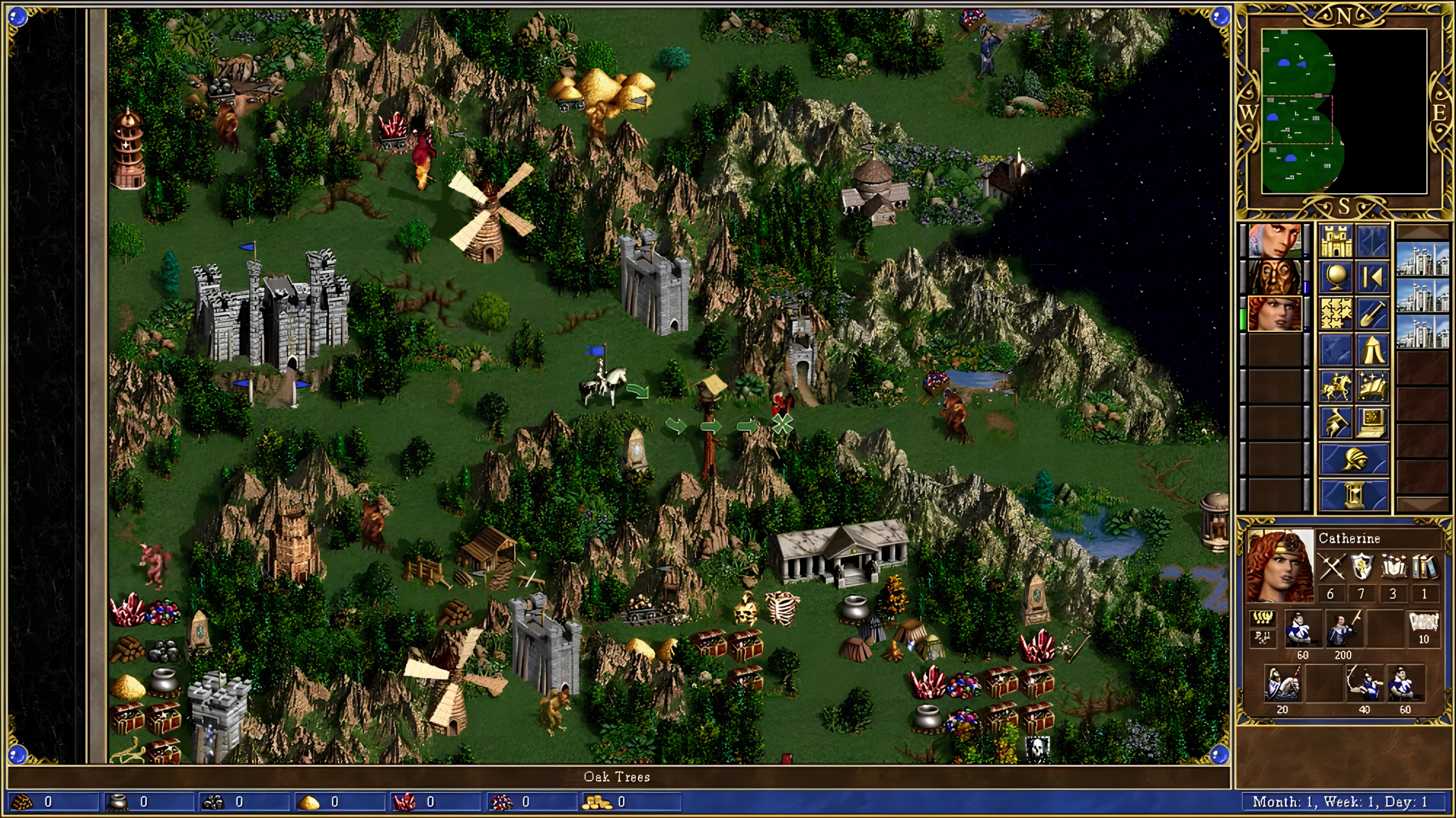
Heroes 3 is a multifaceted game. In it, players have access to a variety of magic, some aspects of character development, access to a large open world, simplified economic moments, gathering an army, and before that, resources for an army, intelligence, various tricks and thinking through complex schemes. The list goes on. All these possibilities can be combined with one, in my opinion, the most important component of the game - the ability and the need to make a choice. The choice between buying an army and building, between different directions of movement, between attacking and accumulating resources - the whole game consists of these, almost always non-linear choices. In tournament games (and in regular games in the lobby, too), one more important resource is added - time. Choosing the most effective choices in a limited time is the basis of competitive heroes.
If you are already an experienced player and all your decisions are so worked out that they are made in a few seconds, I will not be able to tell you anything new. Moreover, most likely about what I write, you can write no worse, and perhaps even better than me. However, I'm not looking for a pro. The hero community is growing and is replenished daily with newcomers. They come after watching streams, videos, they are brought by acquaintances. Their choice was that they decided to start playing and learn to be a better player. My choice is to try and assist them in this endeavor by collecting and systematizing the multifaceted aspects of Heroes of Might and Magic 3.
Here I will try to lay out the possible choices in the different components of the game with examples of how it works and the potential consequences of different decisions. Perhaps the materials of the series of articles about the elections in the game will help make your game more confident and predictable.
_______________________________________________
Choice. secondary skills.
Secondary skills are skills available for the development of the hero that strengthen him in one way or another. Moreover, all secondary skills are strengthened. Here are just some of the power-ups in the game that are either not applicable or too situational. There are 28 secondary skills in total (29 if you count disabled resistances). Out of 28, your choice will be only 8 - that's how many skills a hero can have. Of course, the ability to take all eight is useful, but most often you should not take them right away, because each secondary skill has 3 levels of pumping: basic, advanced, expert. Most often, it is the expert skill that is considered as the goal of learning. For each level, the hero is given one point of secondary skills, which can be spent either on advancing the development of an already acquired skill, or on acquiring the base degree of a new one. Also, secondary skills can be bought at universities, obtained from a scientist or a witch's hut, and can also be promoted by a scientist or a hermit's shack. It is not always possible to get / advance for a level and we will not consider it further, but it is definitely worth remembering and using this opportunity in your games.
At this point, we come to the important part. Since expert secondary skills are more often a priority, we will look from this position. The 5th level of experience is required to obtain two expert-level secondary skills. It's easy to get. To get three expert secondary skills, you will already have to make some efforts: gain 10,000 experience, which corresponds to the 8th level of the hero. To get four expert secondary skills, as much as 17,500 experience and 11 hero level, but to get five expert skills, almost 29,000 experience (level 14).
An important point is the speed of gaining experience. 10,000 experience is easy to get and can be done fairly quickly. 17500 - already more difficult, but more than realistic. 29,000 experience can rarely be obtained quickly, but still possible. Usually, the most effective secondary skills tend to be taken early, so that later with their help there will be an opportunity to simplify their lives and further development. There are practically no situations of developing more than 5 expert secondary skills at the beginning. And the most common ones are 2-4 expert secondary skills. It is from this point of view that I propose to consider all secondary skills. By the way, there will be no shooting ranges. The main thing is to understand for what purposes this or that skill is worth taking and what it can give, as well as when to expect to finish it.
For ease of perception, I will divide all secondary skills according to their use into combat non-magical, magical, and others.
Attack. The skill increases the damage dealt by melee units by 10/20/30%.
Just a melee damage modifier. Just take the attack and hit harder. How much stronger? Up to 30% stronger depending on skill level. That is, if your hero has this skill, 20 wyverns will deal damage like 26. And 300 skeletons like 390 skeletons. At the same time, these bonus creatures do not need to be searched, bought or mined. Very comfortably. You can also translate this into stats from primary skills. Each unit of excess attack over defense gives an increase of 5% to damage. Well, 30% - as if adding 6 attacks to your hero. Not quite correct
Whether it's building confidence, it's always a good idea to remember (or learn) the basic principles of playing Heroes of Might and Magic III in order to enjoy the game even more.
How to move horses and not only we will tell next time.
Нет комментариев